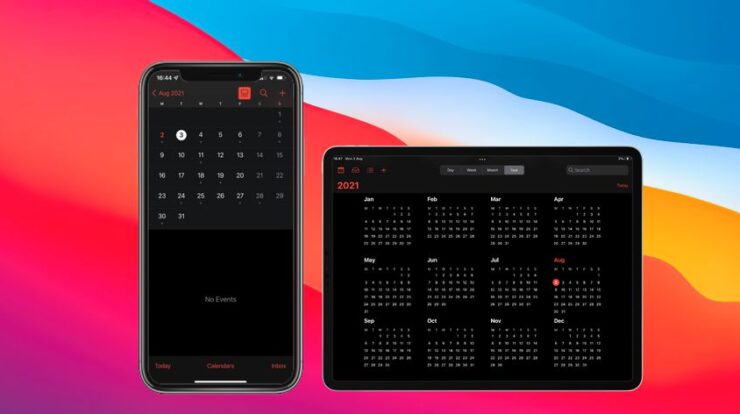
After you’ve borrowed the maximum amount you’re eligible for in both subsidized and unsubsidized federal student loans, private student loans are the best way to pay for education.
Banks, credit unions, and online lenders offer private student loans, which, unlike government student loans for undergraduates, need a credit check.
In the situation of undergrads always need a significant partner to qualify. Private student loans are also more expensive than federal student loans, especially given that federal loan rates are at record lows, and they usually don’t come with the same flexible repayment alternatives.
How To Comparing Student Private Loans
Don’t wait for your school to decide how much of a loan you can afford while you prepare for a private student loan; do your homework. Experts advise taking on no more debt than you’ll likely earn in your first year out of college. This can help you avoid having overwhelming monthly bills once you’ve graduated.
Some private student loan lenders do not set a limit on how much you can borrow each year, but yours might. Find out how the loan will be disbursed and what fees it will cover as you consider which loan is best for you. Only one of the lenders on this list imposes origination fees, and all but one waits at least 120 days after a loan is late to place it into default.
When comparing rates, keep in mind that the lowest rates are only available to people with strong or excellent credit. Furthermore, all of the rates indicated below include a 0.25 percent interest rate savings for making automated payments.
What Are The Best private student loans?
Students should only choose the best private student loans if they have exhausted their federal Stafford loan options. A loan with a low-interest rate but hefty fees may end up costing more in the long run than a loan with a slightly higher interest rate but no expenses.
(The difference is sometimes rolled into the interest rate by lenders who don’t charge fees.) Fees of 3% to 4% are about equivalent to a 1% higher interest rate, according to a good rule of thumb. Private student loans are based on your credit profile and are given by banks and financial institutions. Your credit, as well as the credit of your cosigner, is assessed, as is the rest of the material on your application.
Is It Time to Refinance Your Private Student Loans?
If you qualify for a lower interest rate, you should refinance private student loans. Because most refinance lenders don’t charge any upfront fees, a lower rate can help you pay less each month, save money on interest, or do both.
The following are three advantages of refinancing private student loans:
- Saves Your Capital
Saving money is the most compelling incentive to refinance private student loans. You can save By lowering your interest rate, you can save money on your monthly payments, the total amount you owe, or both.
Assume you have a $2520,000 private loan with a 12% interest rate and a ten-year repayment period. Your monthly payment installment is near about 37,650, with a total debt of 4,338,576 plus interest.
Your monthly payments would drop to around 29,232 and your total repayment amount would fall to 3,511,152 if you refinance at a 7% interest rate and choose a 10-year repayment term, saving you more than 792,000 overall.
- Modify Your Payment Schedule
If you wish to change the way you repay your student loans, refinancing private student loans can be the way to go:
- You Can Modify Your EMI Payment: If you have more than one, you can consolidate multiple private student loans into a single refinance loan with a single payment. Private student loan consolidation is a term used by lenders to describe the same thing as refinancing.
- Spread Out Your Payments To Lower Your Monthly Costs: You can easily reduce your monthly payments by increasing your repayment period to 20 years, in addition to lowering your interest rate. Lowering your monthly payment might help you save money for things like retirement or a down payment on a home.
- Increased repayment tenure, on the other hand, will need to make larger total payments because more interest will be earned.
- Increased repayment tenure, on the other hand, will require you to pay more in total because more interest will be earned.
- Reduce The Length Of Your Repayment To Save Money On Interest: You can refinance your student loans and choose a shorter repayment schedule than you now have if you want to pay them off quickly. You can also make extra payments on your low-interest current private loan to reduce the time it takes to repay it. Prepayment penalties are not charged by student loan lenders.
Is it possible to get a private student loan with bad credit?
Even if you have low credit or no credit history, you can still get private student loans for bad credit. However, qualifying may be more difficult, and rates will be higher. The easiest to qualify for are federal student loans, which don’t require a credit check and don’t take your credit score into a low-interest account, and have the same interest rates for all borrowers. If you need a private loan, look for lenders who have minimal credit score requirements, consider additional eligibility criteria, or allow you to add a co-signer to your loan.
How To Consolidate Private Student Loans?
Normally, Private student loans cannot be marge with federal student loans. Private education loans do not qualify for the low-interest rates offered by government consolidation loans. Private college loans, on the other hand, can be refinanced in a variety of ways. A private consolidation loan simply replaces one or more private education loans with another, as most private education loans do not compete on price.
low-interest
As a result, the main advantage of such a consolidation is the ability to make a single monthly payment. In addition, because the consolidation resets the loan’s duration, the monthly payment may be reduced. Because private student loan interest rates are determined by your credit score, you may be able to acquire a reduced interest rate by consolidating your debts with a private consolidation loan if your credit score has improved significantly since you first took out the loan.
Your credit score may have increased if you’ve graduated and now have a decent job and have been building an excellent credit history. If your credit score has improved by 50-100 points or more, you may be able to get a cheaper interest rate by merging your loan with another lender. You can also attempt talking to your present loan holder to see if they will lower your interest rate rather than losing your loans to another lender.
Steps How To Get Private Student Loans Without Cosigner?
Here are some Steps of private graduate student loans no cosigner:
- First of all, you should take out federal student loans.
- Make sure before you apply for private student loans, you should build credit.
- Examine the features of various loans.
- Choose a fixed-rate loan.
- Keep an eye on the numbers.
- Refinancing may be an option in the future.
How Student Loan Forgiveness Private Loans
Student loan forgiveness is relief from repaying federal student loans that were taken out to pay for post-secondary education, either in full or in part. Yes will private student loans be forgiven In India, student debt has hit an all-time high, with an estimated 413 million people owing an average of roughly 13.7 cores. 1 Some of the obligations, however, may be canceled or forgiven in certain circumstances.
Way To Wave Off Private Student Loan
- Student loan forgiveness frees you from paying off part or all of your federal loans.
- Loan forgiveness is only available for government direct loans; private debts are not eligible.
- Working in public service or making payments on an income-contingent payment plan for a set length of time are the two major ways to achieve student loan forgiveness.
- Federal debts may also be forgiven in the event of a borrower’s infirmity or the college’s closure, both of which are beyond the borrower’s control.
- Students who believe their educational institution has cheated or significantly misled them in violation of state law can seek loan forgiveness through the Department of Education.
Federal Vs Private Student Loans
Whether you choose federal student loans or private student loans, you must pay back the money you borrow, plus interest—whether you graduate or not. Student loans are legal agreements, so make sure you understand what you are signing. If something is unclear, ask your school counselor or lender for help.
There are mainly 3 types of federal loans for college:
- Subsidized Direct Loans.
- Unsubsidized Direct Loans.
- Grad PLUS Loans for graduate and professional students, as well as Parent PLUS Loans, which are loans that can be provided to a student’s parents.
What Are Private Student Loans Defaulted?
If you don’t pay your student loans on time, you’ll default on private student loans. When a loan goes into default, the lender has the right to demand full payment of the whole loan balance. The lender may begin the collection procedure, assign your debt to a collection agency, or sue you, as well as report the default to the credit bureaus.
When, on the other hand, does default occur? After 270 days (about nine months) of missing payments, most federal student loans default. If you have private student loans, however, the time it takes for a loan to default varies.




